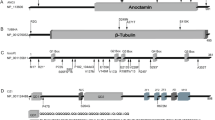Abstract
Recent developments in molecular genetics have had a profound influence on the diagnosis and classification of inherited movement disorders. Huntington’s disease is caused by the expansion of an unstable trinucleotide repeat sequence. Molecular diagnosis can now be performed by a simple PCR-based assay, and the study of the effects of the repeat expansion on the function of the encoded protein will allow to elucidate the molecular pathogenesis of the disease. Wilson’s disease is caused by a large number of different mutations, which complicates molecular diagnosis. Genes for a number of inherited dystonic syndromes have been mapped, one of them, the gene for dopa-responsive dystonia, has already been identified. The genetic basis of several other prevalent movement disorders, such as essential tremor and the restless-legs syndrome however, is still obscure. Current research is also directed at the identification of inherited risk-factors in genetically complex movement disorders, such as Parkinson’s disease.
Similar content being viewed by others
Author information
Authors and Affiliations
Additional information
Received: 21 September 1996 Accepted: 18 October 1996
Rights and permissions
About this article
Cite this article
Gasser, T. Advances in the genetics of movement disorders: implications for molecular diagnosis. J Neurol 244, 341–348 (1997). https://doi.org/10.1007/s004150050100
Issue Date:
DOI: https://doi.org/10.1007/s004150050100




